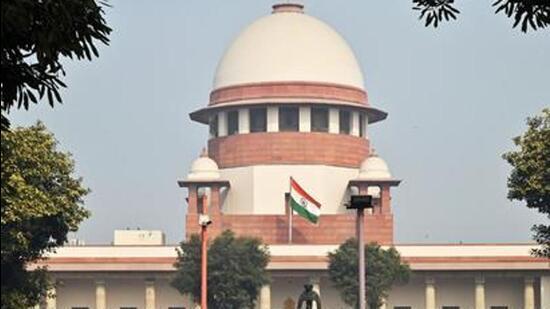
Calling someone ‘Miyan-Tiyan’ and ‘Pakistani’ not an offence: Supreme Court
In a recent judgment, the Supreme Court of India has ruled that calling someone “Miyan-Tiyan” and “Pakistani” is in poor taste, but it does not constitute an offence. This decision came after a case was filed against an 80-year-old man who was accused of hurling abuses at an Urdu translator in Jharkhand.
The case was filed by the translator, who alleged that the elderly man had used derogatory language against him, including referring to him as “Miyan-Tiyan” and “Pakistani”. The translator claimed that these remarks were intended to hurt his religious sentiments and sought damages from the accused.
However, the Supreme Court disagreed with the translator’s claims and ruled that the remarks did not amount to hurting the religious sentiments of the translator. The court observed that while the use of such language may be offensive, it does not constitute a criminal offence.
This decision is significant, as it highlights the importance of separating hurtful language from criminal offenses. In today’s society, we often see individuals being accused of hate speech or religiously motivated crimes, which can have serious consequences for the accused. However, in this case, the Supreme Court has taken a nuanced approach, recognizing that hurtful language can be a form of free speech, as long as it does not incite violence or discrimination.
The case began when the 80-year-old man, who was an elderly resident of Jharkhand, got into an argument with the Urdu translator over a land dispute. The translator claimed that the elderly man had used derogatory language against him, including referring to him as “Miyan-Tiyan” and “Pakistani”. The translator alleged that these remarks were intended to hurt his religious sentiments and sought damages from the accused.
The case was initially heard by a lower court, which ruled in favor of the translator, ordering the accused to pay damages. However, the accused appealed the decision, arguing that the remarks were not intended to hurt the translator’s religious sentiments and did not constitute a criminal offence.
The case was eventually taken to the Supreme Court, which heard the appeal and delivered its verdict. In its judgment, the Supreme Court observed that while the use of such language may be offensive, it does not constitute a criminal offence. The court noted that the translator had not provided any evidence to suggest that the accused had intended to cause harm or incite violence against him.
The Supreme Court’s decision is significant, as it highlights the importance of protecting free speech, while also recognizing the need to prevent hate speech and discrimination. In recent years, we have seen a growing trend of individuals being accused of hate speech or religiously motivated crimes, which can have serious consequences for the accused. However, in this case, the Supreme Court has taken a nuanced approach, recognizing that hurtful language can be a form of free speech, as long as it does not incite violence or discrimination.
The decision is also significant, as it highlights the importance of cultural context and understanding in resolving conflicts. In this case, the use of the term “Miyan-Tiyan” and “Pakistani” may have been intended to be derogatory, but it is also a term that is commonly used in some parts of India to refer to Muslims. The Supreme Court’s decision recognizes that cultural context is important in understanding the meaning and intention behind language, and that we must approach conflicts with sensitivity and understanding.
In conclusion, the Supreme Court’s decision is a significant one, as it highlights the importance of protecting free speech, while also recognizing the need to prevent hate speech and discrimination. The decision is also significant, as it highlights the importance of cultural context and understanding in resolving conflicts. As we move forward, it is essential that we approach conflicts with sensitivity and understanding, and that we recognize the importance of free speech, even when it is hurtful or offensive.






